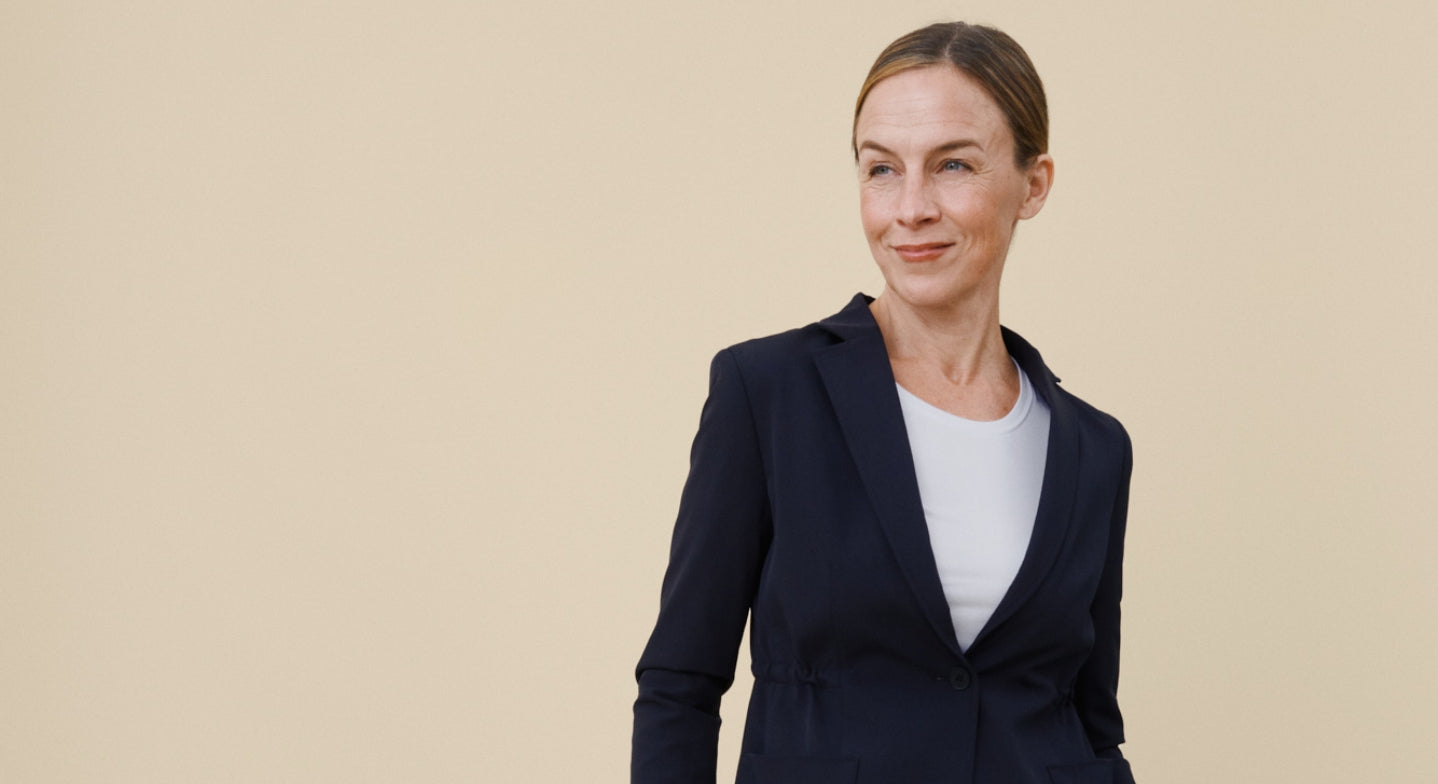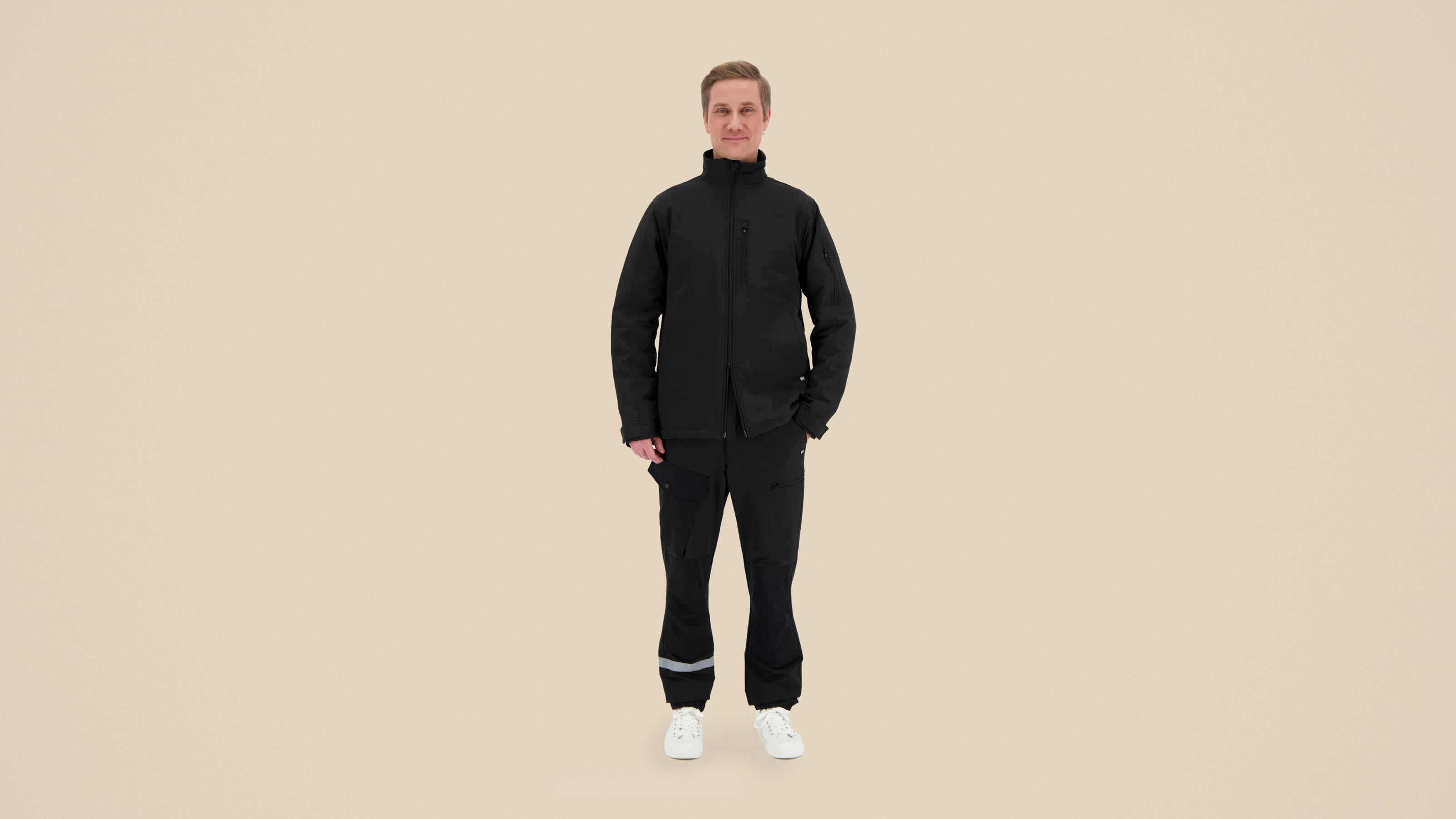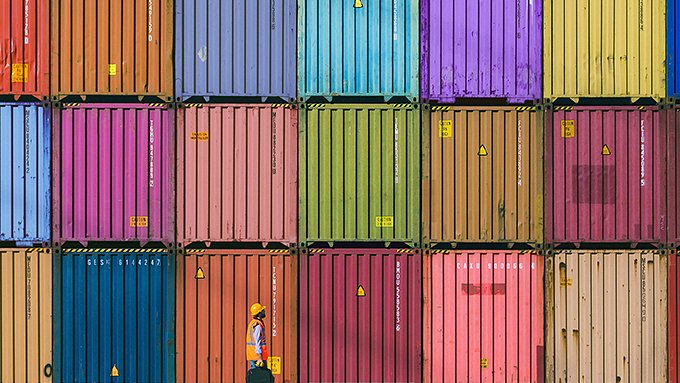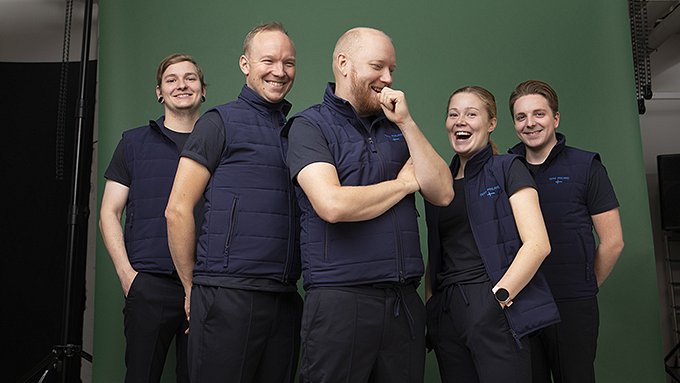The COVID-19 pandemic has impacted production processes in many industries and delayed product deliveries around the world. The situation is also affecting Medanta.
In this article, we will explain what the workwear production chain is like, how transportation difficulties are reflected, and how we speed up the arrival of clothing to Finland.
Medanta's production chain starts in Finland, where we design the fabrics and patterns. We manufacture all the fabrics ourselves. The fabrics are made in China, and the products are mainly sewn in Latvia.
Fabric production takes about 50 days and train freight normally takes three weeks. After that, the cargo is unloaded and the fabrics are sent to factories to be cut and sewn.
Before the pandemic, fabrics traveled from China to Europe as train freight, as Medanta has favored rail transport for environmental reasons.
“Rail freight used to run very smoothly, but now traffic is congested along the entire route. One of our fabric shipments was delayed for two months – for reasons beyond our control,” says Taina Steiner, who is responsible for product development.
In a challenging situation, Medanta considered an environmentally friendly alternative to train transportation.
“We decided to bring the most urgent shipments by forest freight so that we can serve customers faster. We will switch back to rail transport as soon as it is possible,” says Steiner.
Logistics group: Demand for rail freight increased enormously
There are many reasons for the slowdown in transportation. Demand for rail freight has increased exponentially since the pandemic began. There is much more goods moving around the world than can be transported.
“The demand for rail transport, sea freight and air freight has exceeded supply many times over.
It has continued from March 2020 until today and is still ongoing. There are no signs that the market situation will calm down,” says Petri Kallio, CEO of logistics group Dachser. Dachser handles Medanta’s rail and sea transport.
Normally, a freight train travels from China to Finland in 2–3 weeks. Now the journey takes much longer.
The train network becomes congested more easily than sea transport. Bottlenecks occur in processing, at departure stations and at border crossings. Due to new regulations, trains cannot depart daily. To avoid congestion at border stations, trains depart slightly late.
Delivery times are also extended by sea and air
"The largest cargo ships can hold up to over 20,000 transport containers, and one logistics train can hold around 40–50 containers. Trains cannot be added to the tracks in the same way as sea transport, where there is always space. There are still too few trains and connections to Finland," Kallio says.
There have been cases of corona at the borders of the countries, which have slowed down the processing of trains. When cargo handlers fall ill, the processes take longer. In China, it has been typical that if the number of infections increases, strict restrictions, even the closure of stations, follow. There is also a shortage of train drivers in China.
Shipping companies and airlines have also had longer delivery times. Due to the huge volumes, handling at ports and airports has become congested. Prices for all transport have risen.
"Covid infections continue to surge. They are causing cancellations of departures or even closures of airports and ports," says Dachser's Petri Kallio.
One delay slows down the entire production chain
If fabric delivery is delayed, it affects the entire production chain. One delay starts a long series of delays.
“We agree on a production time with the factory when we receive information about when the fabric is ready. The freight forwarder will inform us when it will arrive. When this stage is delayed by two months, the entire production plan changes radically,” says Taina Steiner.
Medanta's partner factories have largely avoided employee COVID-19 infections and plant closures.
However, production capacity at the factory had to be reduced due to the pandemic. Now restarting production and increasing it to previous levels will not happen as quickly as it was reduced at the beginning of the crisis.
Lack of components and raw materials in many sectors
Many industries are now unable to obtain sufficient raw materials and essential components for their products.
Manufacturers of computers, cars, and many other small electronics are facing chip shortages, and there are also shortages of many other components.
Workwear also has important components, such as zippers, which Medanta usually orders from manufacturers in Europe and Asia.
"All materials in workwear must be extremely durable. The zippers must also be of such high quality that they can withstand repeated and harsh factory washing. Replacement products are not easy to find," says Taina Steiner.
Good partners are precious
Taina Steiner emphasizes that Medanta will not solve supply chain challenges by changing subcontractors and partners.
“We don’t leave each other in the lurch. Cooperation with factories has been built for a long time, and long-term partnerships are part of our company’s responsible approach. We support partners, work together, and invest together in timely responses.”
Medanta employees were able to visit the factory in Latvia this autumn for the first time since spring 2020.
“It felt really good to see the people from the factory face to face after a long time,” says Taina Steiner.
“We learn to be adaptable and flexible”
Medanta employees have now developed collaboration within their own team and with customers. The entire production chain has been opened up to customers even more closely already at the sales stage.
"We decided to tell our customers about the challenges openly. When we have informed them about the delivery difficulties, we have also received understanding and even encouraging messages in response. We cannot thank our customers enough for their patience," says Sales Director Tiina Karvinen .
The crisis has taught the company a lot. Solution-orientedness, flexibility and quick response are already everyday work tools for Medan employees, but this period has raised their use to a whole new level.
“Solution-orientedness is an asset. We need to learn when and in what situations we need to change plans. We have learned to make decisions more effectively as a team and to accept that there are situations where a clear decision may be more important than precise knowledge of the outcome.”





















Leave a comment
This site is protected by hCaptcha and the hCaptcha Privacy Policy and Terms of Service apply.